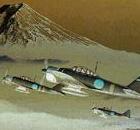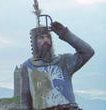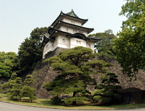Mike Scholl
Posts: 9349
Joined: 1/1/2003
From: Kansas City, MO
Status: offline

|
quote:
ORIGINAL: BoerWar
The edge of the map theory cuts both ways. Perhaps the Germans weren't goihg to invade Great Britiain by 1942. So what? They were a stones throw from defeating Russia in January 1942. A Japanese knife in the Russians back would likely have changed the course of that part of the war. The bulk of Zhukov's counteratttacking forces in early 1942 had been withdrawn from the far east. Furthermore, the Japanese didn't push very hard in China, why penalize a player who does? Why is it legit to invade the U.S., but not to defeat China? If you want partisans to tie down Japanese forces put them into the game. Finally, the concept that the game accurately portraits the airwar in dec 1941 - mid 1942 is goofy. Chinese fighters regularly whacking the Japanese airforce is ahistorical. B-17's carpet bombing in mar 1942 is ahistorical. Zeroes that can't hold their own against P-40's is ahistorical. B-17E's had an effective range of 500 nm (Freeman, B-17 Flying Fortress at War), they put non-self-sealing tanks in the bomb bay to extend the range out to 700+ miles.
Gee Boer..., the way you put it the Axis must have won WWII. As I recall it, General Winter and Marshall Zhukov already had
the Germans falling back before December 7th. And the Japanese were no more prepared to wage offensive warfare in Siberia
in mid-winter than the Germans had been. You'll note that none of their earlier military attempts in this theatre were made in
the winter..., and they were still stomped flat.
And "the Japanese didn't push very hard in China"? Wow! Makes you wonder what they had been doing there since 1937? Of
course these efforts had to weaken when they decided to take on the rest of the world in December 1941...., the Japanese Econ-
omy simply couldn't support that kind of effort. But one of the major reasons the Japanese cite for wanting to expand their war
was to cut the Chinese off from outside aide----which they blamed for their growing lack of success against China during 1940-41.
Chinese fighters did enjoy success against unescorted Japanese bombers during the Sino-Japanese War, which was one of the
reasons longer range was a design requirement for the Zero. And with the advent of a wider war, the Chinese airforce was left
facing Nates and Claudes---neither of which were outstanding.
While I would agree that "carpet bombing" was not a feature of the Pacific Campaign's earlier years, I can't say I remember
there being anything like the hundreds of 4-engined "heavies" available at this time to conduct a "carpet bombing" effort either.
And how well any fighter does against any other has a lot to do with readiness, morale, training, and positional advantage.
Blanket statements that "this" should always beat "that" are meaningless out of context.
_____________________________
|
 Printable Version
Printable Version
















 New Messages
New Messages No New Messages
No New Messages Hot Topic w/ New Messages
Hot Topic w/ New Messages Hot Topic w/o New Messages
Hot Topic w/o New Messages Locked w/ New Messages
Locked w/ New Messages Locked w/o New Messages
Locked w/o New Messages Post New Thread
Post New Thread